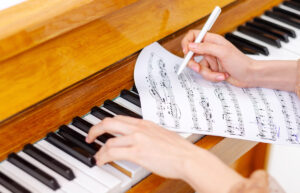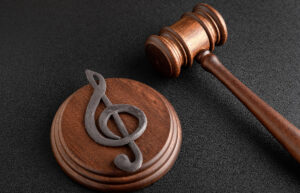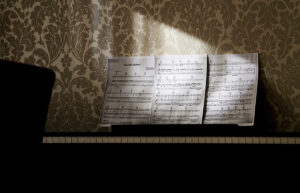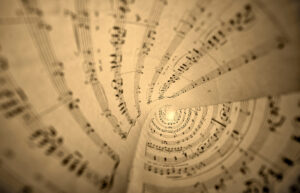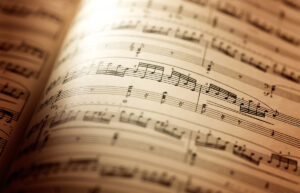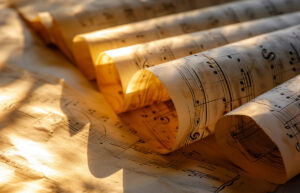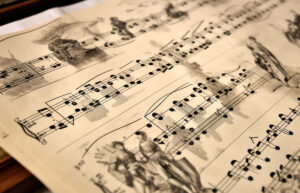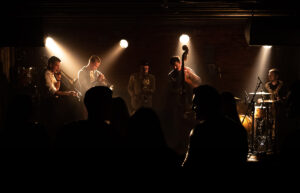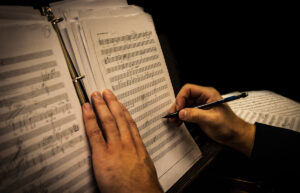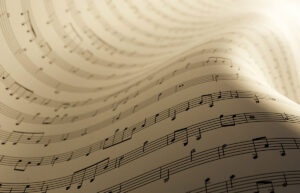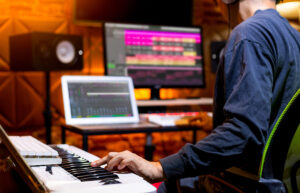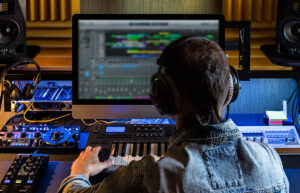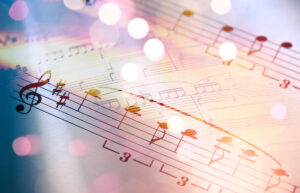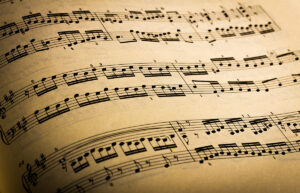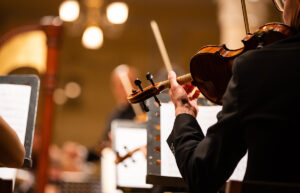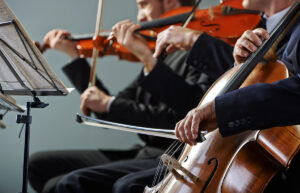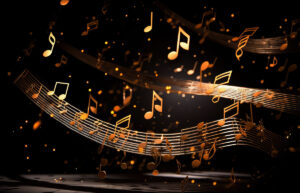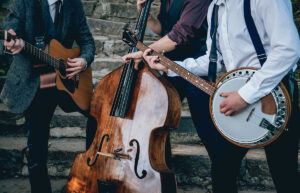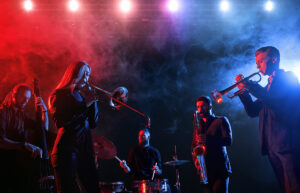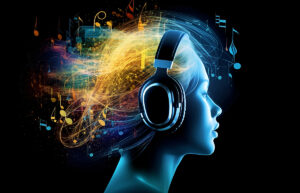Who Created Music: Meaning, History & Importance

Imagine a world without music—no catchy tunes, no soothing melodies. But how did music come to be? Let’s take a journey through time to discover who created music. We’ll explore different cultures and the ingenious people who created music. Join in on this musical adventure!
Welcome to TheDemoStop, now join the community!
Connect with artists, fans and producers around the world.
What is music?
Music is an intricate language of sounds, rhythms, melodies, and harmonies arranged in a structured and often emotive manner. It is a universal form of expression that transcends cultural, linguistic, and geographical boundaries, capable of evoking emotions, conveying stories, and eliciting profound responses from its listeners.
It doesn’t matter who created music or whether it was created through instruments, vocals, or digital means, music serves as a means of communication, entertainment, cultural identity, and personal expression for individuals and societies worldwide.
The history of music
So, music’s origins stretch back to ancient civilizations globally, where it played a vital role in rituals and daily life. Diverse cultures, from Africa to Mesopotamia, developed instruments, scales, and compositions. Their musical practices laid the groundwork for the wide array of musical genres we have today.
Prehistoric music
The sound of nature
Prehistoric music finds its origins in the sounds of nature, the rustling of leaves, the rushing of water, or the rhythmic patterns of natural elements. Early humans, attuned to their surroundings, mimicked these sounds, integrating them into their musical creations. The environment itself served as an inspiration for their musical endeavors.
Vocalization and percussion
Vocalization and primitive percussion were among the earliest forms of musical expression. Prehistoric humans used their voices to create rhythmic chants, imitating the sounds they heard in nature or producing melodic expressions. Hand clapping, body percussion, and hitting objects together became primitive forms of percussion, establishing the fundamental elements of rhythm in early music.
Earliest musical instruments
The advent of musical instruments marked a significant leap in the evolution of prehistoric music. Early humans crafted simple instruments from natural materials like bones, shells, and reeds; percussive instruments like drums made from animal skins stretched over hollowed-out logs, and primitive stringed instruments fashioned from animal tendons or plant fibers were among the first musical tools used to create more structured melodies and rhythms.
Rituals and community
Prehistoric music was intertwined with rituals and community activities. It was an integral part of ceremonies, celebrations, and communal gatherings. Music served multifaceted purposes, from invoking spirits to accompanying religious rituals, fostering social cohesion within groups, passing down cultural traditions, and even playing a role in rites of passage. It strengthened bonds among community members and created a sense of unity and belonging through shared musical experiences.
Prehistoric instruments
- Musical bones
Musical bones were early percussion instruments crafted from animal bones, producing rhythmic sounds when struck together, contributing to early rhythmic music.
- Horn power
Early humans discovered the sound-producing potential of hollowed-out animal horns, using them as both musical instruments and signaling devices in ancient societies.
- Musical conch shell
The conch shell, when blown, produced trumpet-like sounds serving as a musical instrument and having ceremonial and ritualistic significance in ancient cultures.
- Shell musical horns
Shells with natural resonance were repurposed into wind instruments, producing melodic tones or calls and contributing to the musical diversity of prehistoric societies.
Ancient civilization and the birth of musical theory
Mesopotamia
Mesopotamia, notably the Sumerians, pioneered written music around 2000 BCE, using cuneiform script on clay tablets to record hymns and melodies, primarily focusing on pitch representation.
Egypt
In ancient Egypt, music played dual roles. It was integral to religious rituals, believed to connect with the divine, and served as entertainment at social gatherings, banquets, and festivals, employing various instruments like harps, flutes, and drums.
Greece
Ancient Greeks viewed music as fundamental to life, exploring its mathematical and ethical aspects. Philosophers like Pythagoras linked music to cosmic harmony, while education and Greek theater emphasized music’s role in character development and cultural expression.
Welcome to TheDemoStop, now join the community!
Connect with artists, fans and producers around the world.
Middle age music
Sacred vocal music
In the Middle Ages, sacred vocal music, notably Gregorian chant, prevailed in religious ceremonies. Later, polyphony enriched compositions like motets and masses.
Secular vocal music
Secular vocal music thrived with troubadours, trouveres, and minnesingers composing songs in vernacular languages, focusing on themes like courtly love and everyday life.
Instrumental music
Initially secondary to vocal music, instruments like lutes and viols accompanied vocals or dance. Gradually, instrumental music gained prominence, leading to the emergence of instrumental dances and compositions.
Music in Renaissance
Social change
The Renaissance era witnessed cultural shifts, with music becoming integral to courtly life and public events, supported by patronage from affluent families and the Church.
Harmony and style
Musical innovation flourished in the Renaissance, with composers exploring richer harmonies, intricate polyphony, and new forms like madrigals, enriching musical expression.
Notation and theory
Advancements in musical notation led to more precise systems, enhancing the communicative power of written music. Theoretical treatises by scholars like Gioseffo Zarlino refined musical principles, scales, and harmonic relationships, shaping foundational musical theories.
Importance of music in our lives
Music holds profound importance in our lives, serving as a universal language that communicates emotions and experiences. It influences our moods, shapes memories, and connects us culturally.
Beyond entertainment, music impacts our emotional well-being, offers solace in tough times, and amplifies joy in moments of celebration. Its significance spans education, therapy, cultural heritage, and social cohesion, enriching our lives in multifaceted ways.
Conclusion
What is music?
Music is an art form comprising sounds, rhythms, and melodies organized in a structured manner to evoke emotions, convey messages, and express creativity.
The history of music
- The ancient roots of music
- Timeless nature of music
- Music as a universal language
Prehistoric music
- The sound of nature
- Vocalization and percussion
- Earliest musical instruments
- Rituals and community
- Prehistoric instruments
Ancient civilization and the birth of musical theory
- Mesopotamia
- Egypt
- Greece
Middle age music
- Sacred vocal music
- Secular vocal music
- Instrumental music
Music in Renaissance
- Social change
- Harmony and style
- Notation and theory
Importance of music in our lives
Music holds significant importance in our lives by influencing emotions, memories, and cultural connections, impacting our well-being, and serving as a universal language of expression and communication.
FAQs
What is the history of music?
The history of music spans centuries, evolving through diverse cultures and eras, reflecting human expression, cultural identity, and societal changes.
What is the importance of music in our lives?
Music holds immense importance in our lives by influencing emotions, memories, cultural connections, well-being, and serving as a universal language of expression and communication.
When was music first invented?
The exact origin of music is unclear, but evidence suggests it existed in prehistoric times, possibly as early as when humans began vocalizing and using rhythmic patterns, dating back tens of thousands of years.
How do you define prehistoric music?
Prehistoric music refers to the musical expressions and sounds produced by early human cultures before the advent of written history, often inferred from archaeological findings of ancient instruments, artistic depictions, and musical artifacts.
What does middle ages mean in music?
In music, the Middle Ages refer to the period from approximately the 5th century to the late 15th century, characterized by sacred and secular compositions influenced by the Church and feudal systems.
What was music like in the medieval period?
Medieval music was predominantly sacred, featuring monophonic chants like Gregorian chant, evolving later into polyphony. It also included secular songs focusing on courtly love and everyday life.
How did ancient civilizations use music?
Ancient civilizations used music for rituals, ceremonies, entertainment, worship, and storytelling, reflecting cultural traditions and societal values.
How did prehistoric people first create music?
Prehistoric people likely created music through vocalization, imitating natural sounds, and crafting simple percussion instruments from natural materials.






